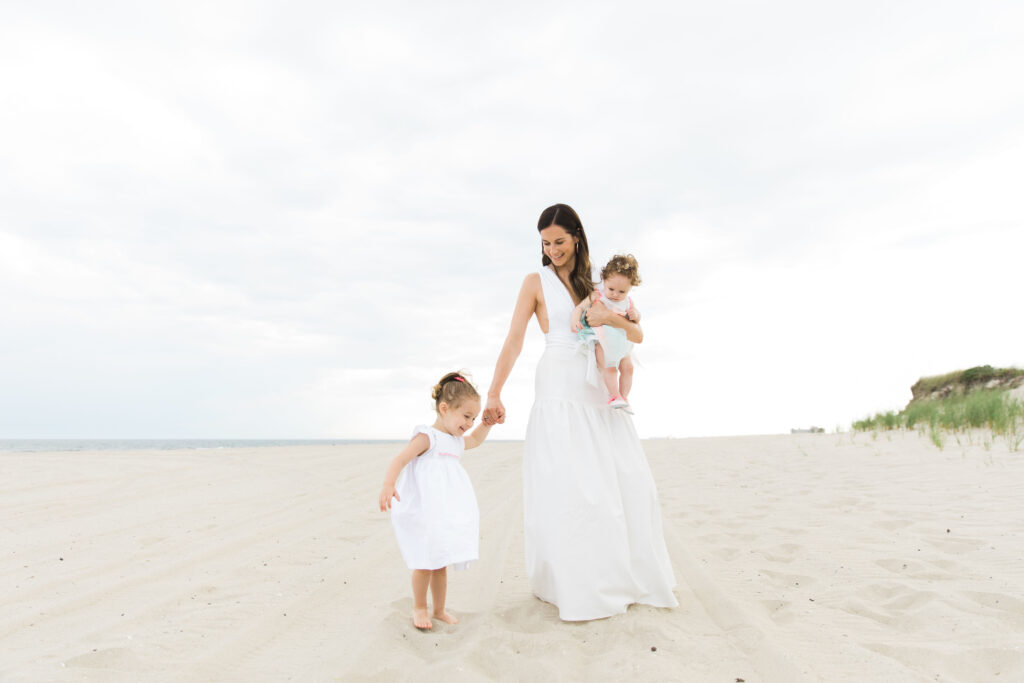There?s no debate that being a parent is the hardest job in the world. It?s something no one can prepare you for, and no amount of advice will equip you for the around-the-clock demands of being a full-time provider and carer for a little human being. The payoff, of course, is immense. Bringing another life into the world, nurturing them, and watching them grow is the greatest gift there is.
Mother-of-two Jennifer Monness knows all about the hard work and challenges being a parent brings. She also knows the happiness and joy involved in watching your little one explore and learn about the world. As a consequence of her diverse background and extensive experience in early learning, Jennifer founded the popular resource, Mo? Mommies. The Instagram account acts as a support network and resource center for moms everywhere. As someone who has experienced her fair share of trials and tribulations on her motherhood journey, ?Jennifer is keen to share with us her top five tips for new parents. ?
Have Faith
Being a parent is hard, but the decision making around it is even harder. Jennie says, ?the most important parenting lesson I learned early on was that we shouldn?t strive to do it perfectly. We should aim to trust ourselves. No one can give us the perfect answer when it comes to questions around how we raise our children. The goal is to trust ourselves to make those decisions and not to look endlessly elsewhere. No one is a better parent to your child than you are.?
Give Yourself Grace
Sleepless nights, constant worry, and adjusting to a new lifestyle and routine can all induce stress in a big way, but it?s important for your health and that of your little one, to keep calm and carry on doing what you do best?parenting. A baby looks to their parents for reassurance, protection, and a sense that everything is going to be alright. If you?re spread too thin and over stretched, that weighs on you. Children will pick up on it and it can make a situation that is hard, even harder. If you can, ensure you have a close and caring support network in place for when the going gets tough.
There?s Strength In Numbers
Never be afraid to ask for help or take time out when you need it. Trying to do too much alone is a recipe for disaster. If your partner is not around, then ask friends and family to lend a helping hand. Form a community, be vulnerable and make friends. This is one of the reasons that Monness started her own moms groups which led to the success of the space she co-founded, Union Square Play.
Let your child lead and slow down.
I?ve never met a new parent who isn?t anxious that they?re not doing everything perfectly. My advice is to look to your child to lead you. As long as your child feels a sense of security in a loving environment with healthy attachment to their caregivers, they will be able to communicate effectively. It may be a gesture, a whine, a cry but by slowing down before we immediately and anxiously react to this, we can find out a lot about who are child is. What bothers them, what scares them, upsets them. Instead of reflexively acting, slow down and learn from your child.
Build in time to be present
This doesn?t need to feel like another thing to do on your endless ?to do? list. This can be built into the caregiving that we are already participating in with our child. Think about it as if a child has a tank that needs to be filled in order to feel ?emotionally full.? Without a filled tank, babies are more likely to want to cling, they don’t want to be put down as easily or play on their own; inevitably things can feel harder for everyone. By really ?milking? the time with our child during things like a diaper change, feeding a bottle, or reading a book, we are actually building a sense of security that lets our child know that we are attuned to them and their needs. They start to understand ?hey someone is always looking out for me, so I feel comfortable exploring on my own.?
